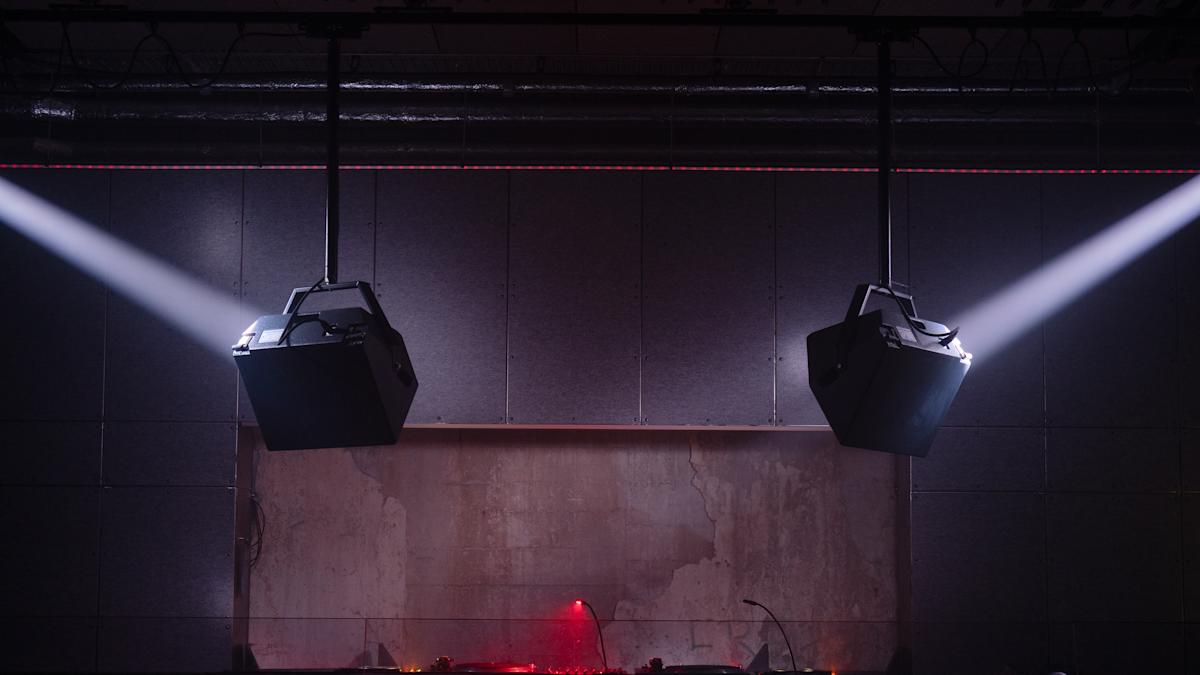
Heavy Feelings and Refuge Worldwide break common ground
We head to Wuppertal in February for a night at Open Ground.
Loading
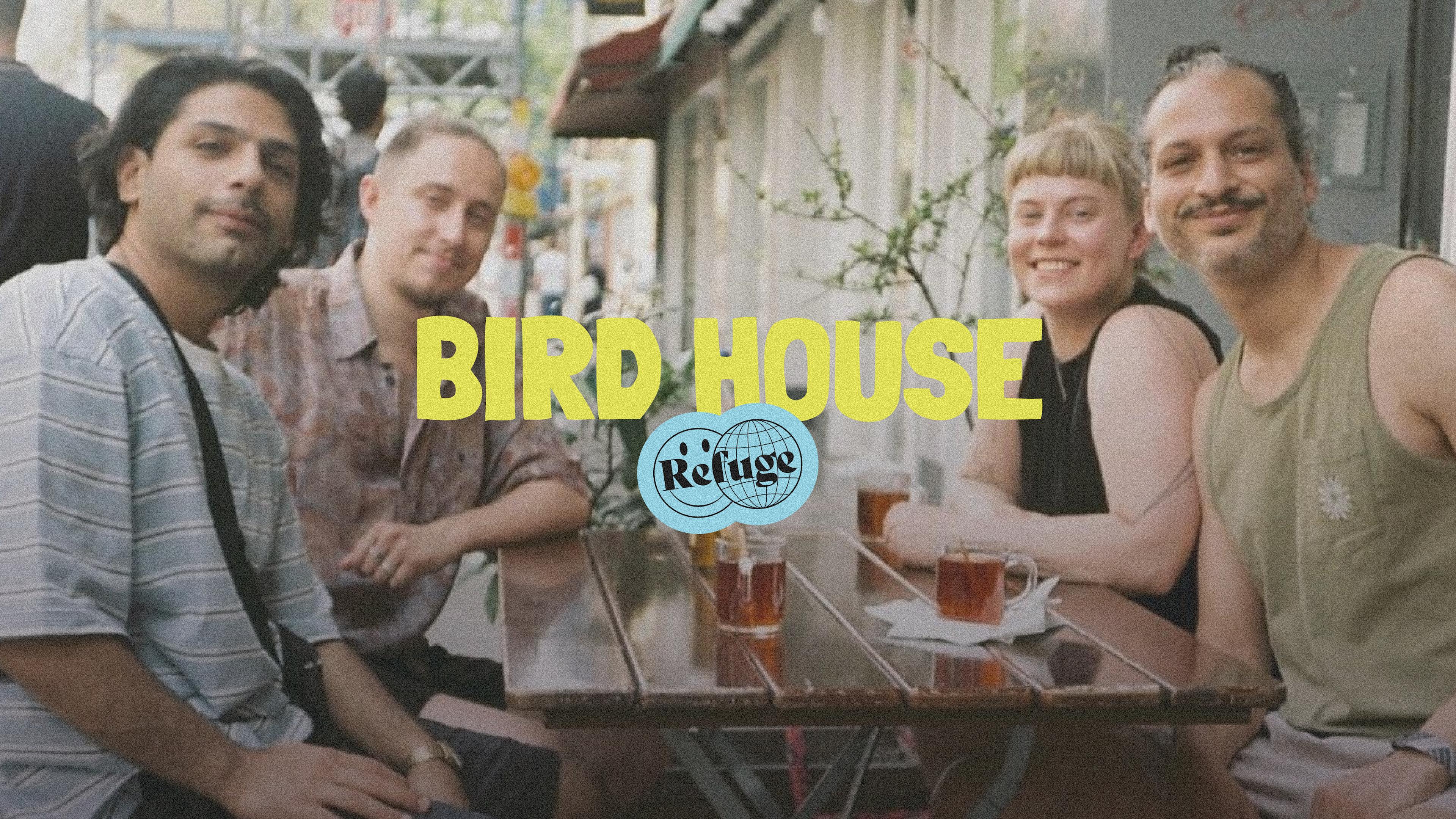
Dance floors as mutual aid, and collective joy as resistance.
By Alice Yang
On 29 August from 15:00-22:00 at Niemetzstraße 1, Refuge collaborates with Bird House Berlin for Threads of Liberation. This is a day of solidarity to raise funds for four organisations across Palestine, Congo, and Berlin: Al-Jawad Refugee Camp, the Arab Centre for Alternative Planning (APN), Focus Congo, and GLADT Berlin.
The community gathering this Friday is both a fundraiser and a celebration of joy as resistance. The programme will feature artists across various disciplines, including an audio-visual storytelling of Palestinian identity by Jamila Al-Yousef, workshops, panel talks discussing Palestinian liberation struggles by Jamila and Udi Raz, and a community market featuring various independent artists. Musically saHHara Berlin are down for the evening with a special takeover featuring resident DJs saHHar and Rabibti Atable, who will blend neo-traditional Arabic sounds. Finally, Palestinian neo-Levantine cuisine will be served by Andek Akkoub.
This fundraiser is moderated by Bird House, who will soon be celebrating their 3rd anniversary. In conversation with co-founders Lea Czychy and Moehecan, below we discuss the evolution of their project, dance floors as mutual aid, and the fundamental value of collective joy as micro-revolutionary modes of resistance.
Lea: I'm Lea Czychy, a special education teacher, cultural worker, and co-founder at Bird House. I see myself as an interface for many areas, handling communications, bookings, and artistic direction.
Moe: My name is Mohammad or Moe, and I’m the co-founder and curator behind Bird House. Notable mentions before I go on are our other co-founders, Khaled & Noah. I wear a lot of hats, organising events with Lea, building collaborations, and handling logistics. But really, my role is about weaving people and ideas together: artists, communities, and causes.
Moe: We never set out with the intention of building a “collective” or a “community” in the formal sense. Simply, we wanted a reason to gather with our friends while creating opportunities to meet people who share similar values and ethos. Looking back though, the way we began naturally laid a foundation for that.
Lea and I were already working in clubs and parties at the time. We had a sense of how things operated in nightlife, but also felt like certain things could, and maybe should, be done differently. Bird House became a way to test that intuition — to explore whether we could create a space that feels more aligned with our values and with the communities we wanted to be a part of.
From the beginning, collaboration was central. We were motivated to create spaces for exchange, to collaborate with artists and collectives, and to learn from one another. Taking inspiration from how platforms we admired organised, built culture, and held space gave us not just a blueprint but the courage to try it for ourselves. With our first party, we took a shot in the dark: found a venue, and waited to see what could happen.
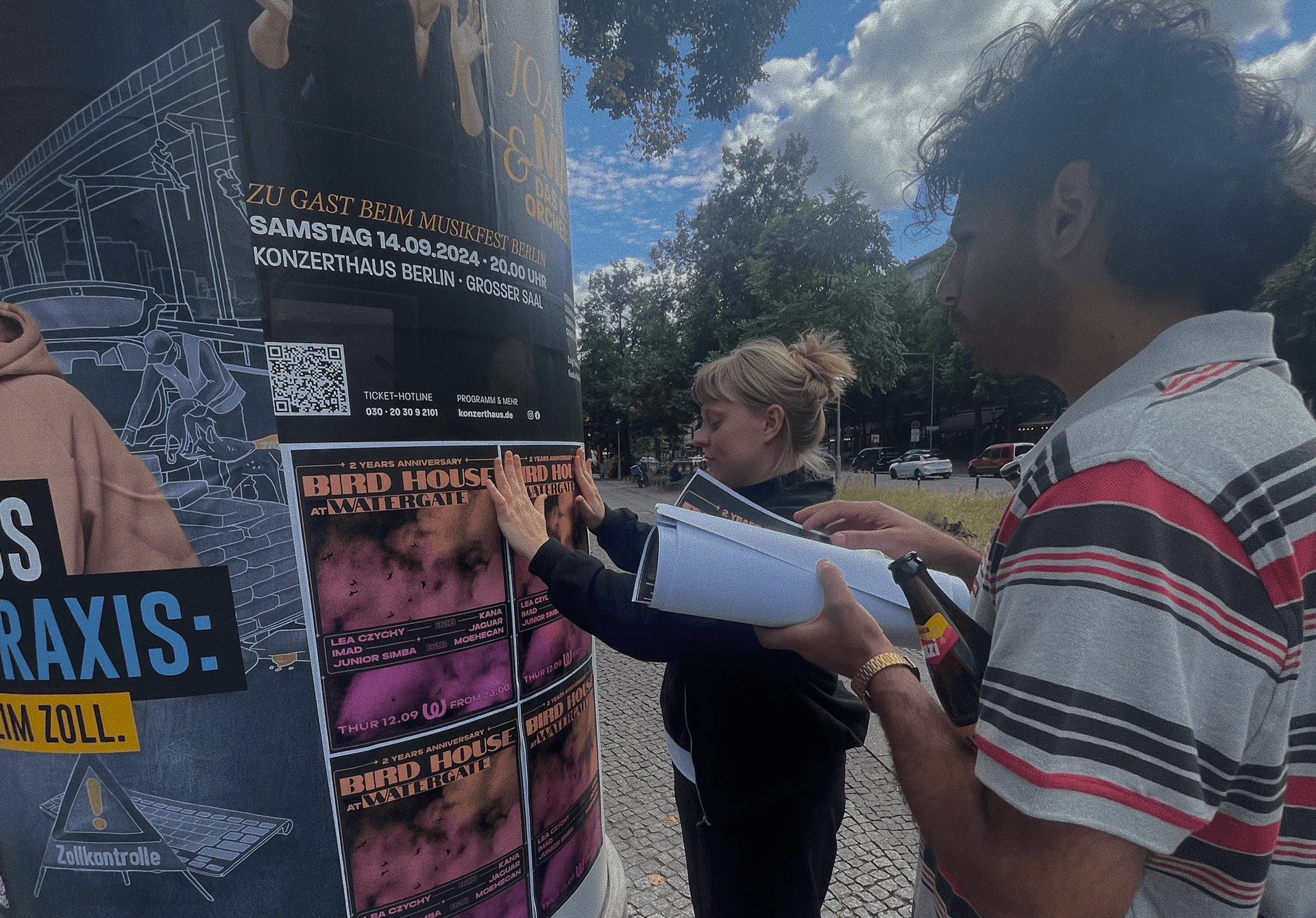
Lea and Khaled, 2-Year Anniversary at Watergate, 2024
Lea: Club culture operates on a different scale than our dance floor. It’s been commercialised and commodified, making it difficult to attend to details and foster a crowd with a similar ethos, which for us, is essential to make a space feel safe. It's not that they don’t take measures to care for guests, but that there’s a lot more room for error simply because it's a company, meaning there’s less energy dedicated for care, which takes away the potential for that collective resonance. For us, the dance floor is an intimate and present space, where each night has the potential to create unique memories, authentic experiences, and serve as a collective healing environment.
Moe: I look at the dance floor through a slightly different lens — more from a neurobiological perspective. When we dance, when we feel safe in a room, our nervous system reacts in ways that counteract stress and even help us heal from trauma. It’s not just a place to gather; it’s an opportunity to defend ourselves from pressures of the socio-political world.
This isn’t new. Throughout history, from the Stonewall riots in the States to clubs like The Warehouse and Paradise Garage, dance floors have always been a refuge for marginalised communities. It was more than just about music. It was a means for those communities to survive, resist, and heal in the face of persecution. I discuss this more in depth in an editorial I'm publishing for an underground music journal Forward/Scratch in the coming months, and Tim Lawrence’s book Life & Death on the New York Dance Floor illustrates the significance of those movements.
We’ve made a lot of progress since then, but I’d be lying if I said things are fine now. Homophobia, transphobia, racism, Islamophobia, antisemitism — they’re not only present but exponentially on the rise, everywhere. Keeping the dance floor a place to celebrate any identity is therefore essential, especially in these times. This was a big part of what motivated us to start our own parties, to keep the dance floor a refuge where people can come together and feel safe in their identity in an inclusive space, and keep these values alive. It’s an entirely separate thing from the commercial model of clubs.
Lea: With Bird House, there isn’t exactly a handbook on how to operate a community space responsibly. And because each collective operates in different contexts, we had to find ways that worked for us. Initially, we just wanted to bring friends together, share music, and align the money we generated with our values. Like any new collective, we couldn’t be too picky with venues and took what we could get. Over time, we realised the importance of standing firm in our values; no compromises. If we did, we’d be putting our friends and guests in potentially dangerous situations. Those are not responsible party ethics.
Especially since our two-year anniversary, I feel like we’ve really grown into our own. We’ve started to leave lasting impressions on people. And that, for me, begins with genuinely getting to know our guests because in a city like Berlin where there’s so many great options, when someone chooses to spend their night with us, it means something, and it’s a trust we have to honour and respect.

Lea and Moe, 2025
Lea: The media preaches inclusion, but in reality, discrimination against marginalised groups is persistently on the rise. Dominant modes for information masks this, which makes it all the more important to create spaces where people can meet and where low-threshold cultural and human exchange is possible.
As a teacher and also working at the theatre, I feel the recent policy changes from all sides. So much funding for culture and education is cut, while racially motivated violence is on the rise. For me, there is no such thing as a so-called “safe space” in public; there are just too many factors you can’t control and have to consider. Communities, united by shared worldviews, hold greater potential to foster that sense of unity. If we represent specific values, we invite like-minded people, and it is precisely this emerging togetherness that creates an atmosphere that comes close to a safe space. It’s always trial and error, asking ourselves with each event: Was there room for improvement? We try to learn from our experiences and adapt to changing contexts each time we organise, and each night we get better at it.
Lea: We want to be open to everyone, regardless of their state. Regardless of their emotions, we want people to come as they are and be in the moment with us.
Moe: It’s values that you should find as the standard anywhere: We don’t care where our guests are from, what they do—none of that matters except the fundamental respect for these values, for themselves, and for the dance floor. Being considerate of consent, boundaries, and ethics. There’s a lot of little things that we do at the party to be active in the event itself. It’s so easy when organising just to put out a flyer, promote the party, and then hang out backstage at the actual party. But if we’re not present and active, we can’t see what’s actually going on the dance floor. Lea: We really try to make sure we can see if someone is uncomfortable so we can address that, bringing a level of care that is felt in all facets of the community. That means having a relationship and cooperation with the venue’s security. Making sure all parties are on the same page on what is appropriate conduct or not. Moe: It also means being inclusive from a financial standpoint. We always keep a community guest list because, well, shit gets expensive, especially in this economy.
Lea: For me, it's always been essential to communicate thoughtfully and respectfully to everyone, so there was never a point where I thought, "Now I have to be careful about what I say or share." I'm aware of my privilege, and I try to use it to speak up for issues I believe in and give a voice to those not being heard. Part of organising with Bird House is about creating an environment where different voices can be expressed without fear, whether that’s through music, art, or conversation. Of course, freedom of expression comes with responsibility, which means ensuring that the space we hold is not only open but also protective of those who are most vulnerable. To take care and be aware.
Lea: So many things, but at its core, listening to each other and having a fundamental openness to ideas. Just because something has always been done one way doesn't mean it has to be that way forever.
To actually listen and take the time to comprehend, reflecting on processes and developments within and outside the system. The party scene can get spontaneous and eclectic with so much going on at the same time. It’s easy to just push through, but major changes take time and should be evaluated both during the process and after. Making decisions overnight isn’t an effective strategy; taking time means being able to optimise solutions while remaining sensitive to changing needs and contexts.
It also means recognising that people’s capacities vary at different stages of their lives, and meeting each other where we are without judgment. It’s about building sustainable structures of care that don’t just react in moments of crisis, but strengthen us in the long run.
Evaluating decisions through open dialogue and listening enables us to provide the community with what they truly need, maintaining a space that adapts to an ever-changing landscape of politics, social life, and individual capacities.
Moe: Every day we’re left with fewer avenues to resist and to reclaim even the most basic conditions of dignity, fairness, and freedom for our communities. I don’t see celebration as an escape from that reality; it’s a way of confronting it, both as a responsibility and an act of care, not just as cultural workers and artists, but as members of society.
Early on, we decided our tools to bring that joy would be music, dance, and community building. Those are the things we’re good at, the things we love, and they’re also powerful ways to channel energy against oppressive systems. Celebration doesn’t mean ignoring the pain in our world. Rather, it’s refusing to let that pain silence joy, creativity, and solidarity.
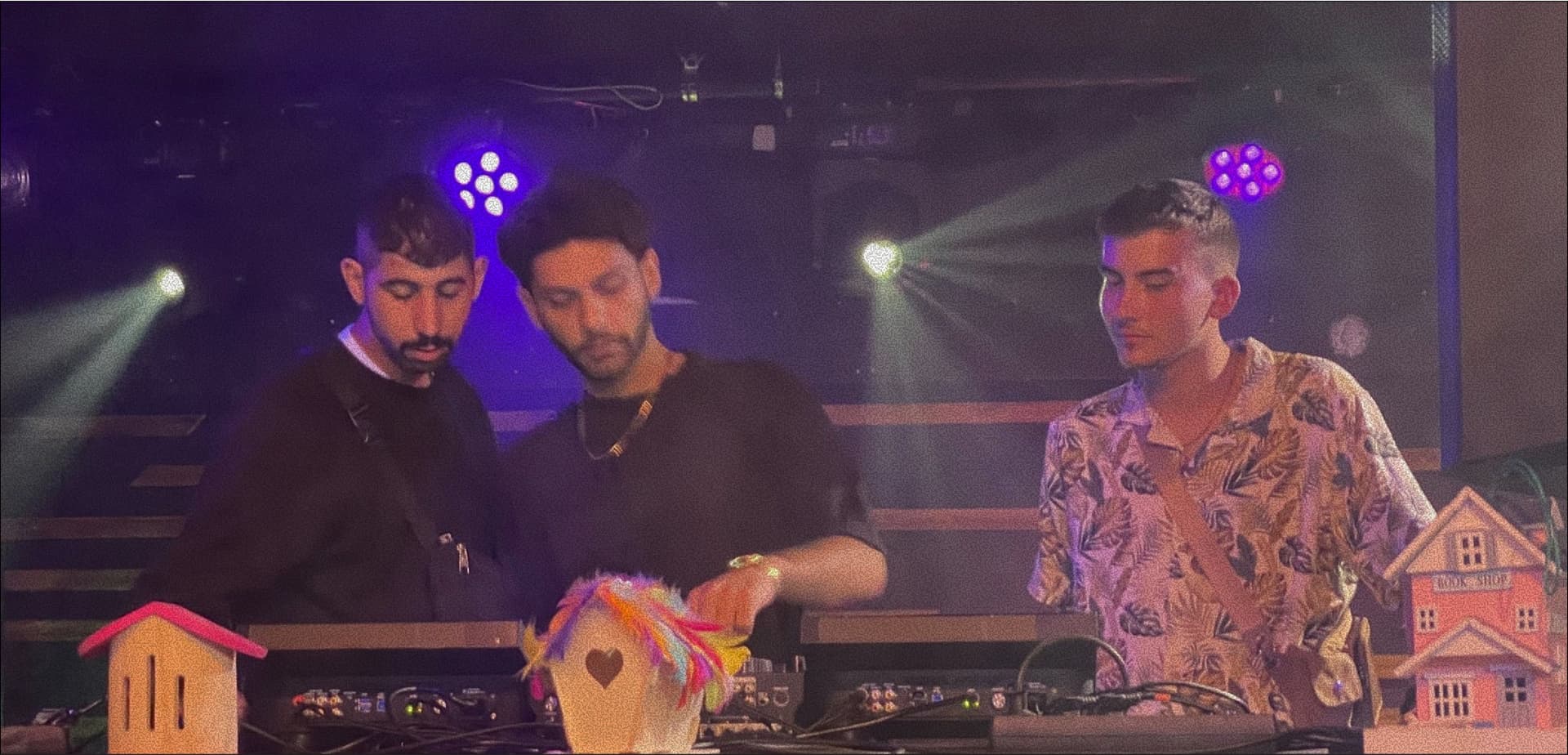
Khaled, Walid, and Nicklas, Bird House at Badehaus, 2022
It’s thinking about the dance floor as this “other” space, free from what’s going on in the wider world, which doesn’t always represent who we are. Dancing with a like-minded community in a space where we resonate with values because they are co-created by each member of the community, and celebrating that collective truth as we dance, helps us reclaim our authenticity. It’s a tool to collectively heal, recharge, and spread that energy outside the dance floor.
Lea: In our programming, the lineups aren’t just about entertainment; the aim is to represent the voices and sounds of marginalised communities. We try to design spaces where people can feel unpoliced and safe enough to let go, even if just for a night. When we collaborate with other grassroots initiatives, we aim to build connections beyond the dance floor to foster a sustainable form of solidarity and expand our mutual aid network.
Lea: A personal favourite was playing B2B with my best friend Franca. It was our first gig at a “real” venue and not at a house party, and so many of our friends came to support us. The whole dance floor was intermingled with them. It’s the best feeling. That’s why I like playing openings: it’s not that packed, a lot of friends are dancing, talking, and hanging out. This moment took things to another level for me because I felt Bird House’s core peak through as a space of support, learning, and trust. I felt the dance floor as a place of joy for the community, not just for the crowd, but also for us as artists and organisers. These moments inspire so much and give us the confidence to explore more of that.
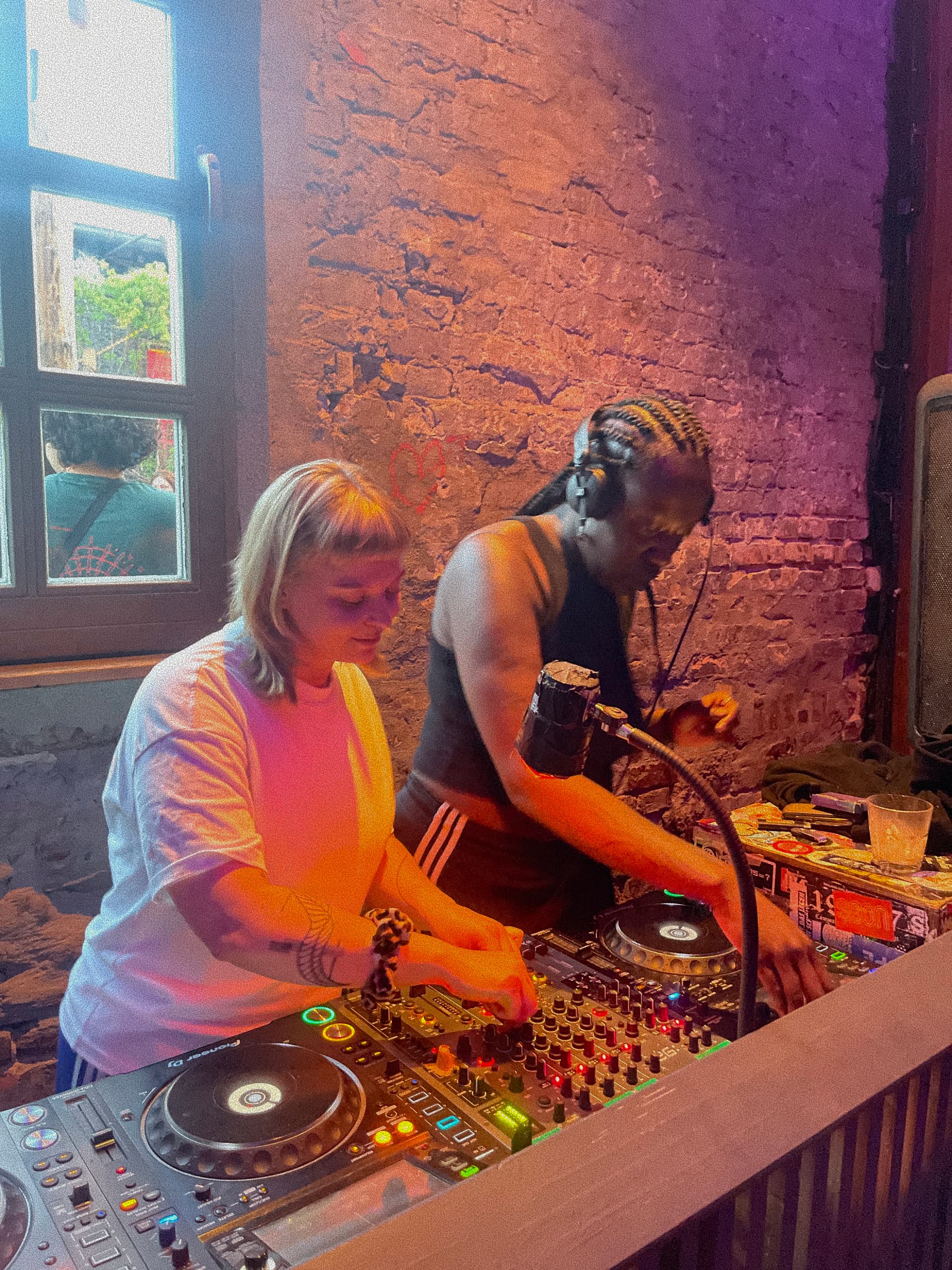
Lea Czychy b2b Francs, Crack Bellmer, 2024
Lea: One of our most significant milestones was realising that less can be more. Over time, we built the confidence to understand that what really matters isn’t how often we throw parties, but the kind of energy we channel when we do. We always want to stay true to ourselves and focus on spaces that genuinely align with our values. That might mean hosting fewer events, but the ones that do happen can be executed with care, intention, and depth.
Moe: I think a lot about the current atmosphere in Berlin. With clubs like Watergate already closed and Renate soon to follow, there’s no denying that the scene is shifting. Many people feel that closures shrink the cultural space, but what I’ve noticed, and continue to explore, is the multitude of diverse venues in Berlin — more than people often realise. It was during my 6th year in Berlin when I discovered places like Arkaoda or Sameheads, which got me thinking how much the circles we’re in shape the spaces we know and the communities we feel welcomed by.
For Bird House, part of our long-term vision is to continue seeking out and nurturing those overlooked spaces: places where our community truly feel we belong. That is a necessary input into the cultural sphere: not just filling a calendar, but creating sustainable, intentional spaces that centre community.
In doing so, these spaces also become more accessible. People gravitate toward clubs or known collectives simply because they might not know there’s more. Nurturing a community in Berlin’s multitude of alternative spaces restores the values from which this very culture was cultivated.
Moe: We’re really excited to celebrate our 3rd anniversary in November — though I can’t share the location just yet. But before that, we have something very close to our hearts: our first-ever fundraiser, happening August 29th at Refuge’s Niemetzstraße space. For us, this feels like one of our most significant milestones yet.
It’s special because fundraisers were always part of Bird House’s DNA. Khalid, another co-founder and I actually met at Crack Bellmar, at a fundraiser for Lebanon 9 years ago. That moment really stuck with us. When we started Bird House, we always knew that one day we would organise something similar: an event where music, dance, and community directly contribute to a cause bigger than ourselves. It’s mad special to realise that vision now with Refuge, and collaborating with so many incredibly talented artists.
Personally, Refuge has been pivotal for me since I joined as a resident — it’s a space where I’ve learned a great deal about linking culture with solidarity, an ethos that deeply shaped how we think about Bird House. So in many ways, this upcoming fundraiser feels like a full-circle moment, and hopefully the start of more collaborations like this in the future.
Moe: Absolutely! This fundraiser was heavily inspired by A Day of Remembrance, a day of solidarity with Congo organised by Josiane and Anna Lucao 10 months ago at the very location we’re hosting Threads of Liberation. Their level of care, thought, and detail deeply moved me, catalysing an imagining of other forms of solidarity we could exercise. A highlight was the Congolese dance workshop hosted by Anissa, so you can imagine how excited I was when she expressed interest in hosting the same workshop at TOL. That workshop was hands down one of the coolest, funnest things I've ever experienced, and I'm really excited to see share that with everyone. Jamila Al-Yousef from Jamila & the Other Heroes will also perform an audiovisual storytelling piece with live music and videos, sharing her experiences from her time volunteering in Jenin, her family's Palestinian heritage, and survival strategies as a Palestinian in Berlin before and after the genocide began.

A Day of Remembrance, Niemetzstraße 1, 2024
Jamila will also be on the panel alongside Udi Raz, who will be discussing the entanglement of Palestinian and queer liberation struggles, as well as why the liberation of Palestine from Zionism also means the liberation of Judaism from Zionism. I’m over the moon that both Jamila & Udi are taking part; they are massive inspirations in their respective ways, so for them to join means a lot.
We’ll also have a Tatreez workshop hosted by Juthouri, an art exhibition by Ann Kiernan, and merch vendors like Wearholysoul, Ruby Darling, and Patu Comic. No great day goes by without any of Birdhouse’s super duper famous food! We’re thrilled to share some vegan Palestinian, neo-Levantine cuisine alongside Janine from Andek Akkoub and put a bunch of smiles on some faces. We’re very excited for Andek to join us this evening, as their work is a big inspiration to us.
Last but not least, we’ll have a DJ takeover from saHHara Berlin with resident DJs saHHar and Rabibti Atable, who will share neo-traditional Arabic soundscapes with the dance floor. It’s heartwarming to see the level of solidarity under one roof, and we’re truly grateful for Refuge’s hospitality and support to realise an event so dear to our hearts.
Lea: We are supporting four incredible organisations doing crucial work: Al-Jawad Refugee Camp in Palestine, the Arab Centre for Alternative Planning (APN), Focus Congo, and GLADT in Berlin. Each of these groups approach liberation in their own way — from providing direct resources and improving living conditions in Palestinian refugee camps, to advocating for land rights and housing justice, to empowering communities in Congo, to fighting discrimination and offering support for queer, trans, Black, Indigenous, and migrant communities in Germany.
For us, bringing these causes together under one roof is about showing that our struggles are interconnected. Whether in Palestine, Congo, or Berlin, marginalised communities are facing systems of oppression that deny dignity, land, safety, and freedom. Supporting them is not charity, but solidarity — a way of weaving threads between movements that might seem geographically distant but share the same fight for justice.
For Bird House, the dance floor is a starting point for people to experience joy, belonging, and collective strength. The fundraiser is a way to extend that energy outward and ask: how can we take the love, care, and resilience that emerge when we come together here and direct it toward communities resisting oppression globally? That’s the deeper purpose behind TOL, a trickling of mutual aid in the international network.
Moe: Joy is one of the most radical things we can hold onto. When systems of oppression want to reduce people to survival, to exhaustion, or to silence, choosing to create joy together is an act of defiance. Collective joy interrupts the narrative that we are powerless. It reminds us that we have the ability to connect, to celebrate one another, and to imagine futures beyond what we’re told is possible.
For me, joy on the dance floor or in a shared workshop space is never superficial. Neurobiologically, joy regulates stress, heals trauma, and strengthens bonds, which is precisely what makes it so dangerous to oppressive systems. A liberated body in motion, a group of people singing or sharing food, a room full of strangers who become a temporary family: these are micro-revolutions. They strengthen us for the bigger fights and help people reclaim agency by feeling that joy as a collective.
That’s what we stand for: joy as resistance, not an escape from reality but a rehearsal for a better one.
Every time we gather, we’re not only resisting isolation and despair, we’re actively building the culture of care and resilience we want to see in the world.

Refuge Worldwide, Niemetzstraße 1, 2024
When I think of our events or other fundraisers I've been going to, I think to myself in this climate, and I realise, it takes a lot of fucking energy to get out of your house, trek across the city, and show up. Fighting for these causes can get quite mentally and physically and financially taxing, especially as progress is hard to see, while friends are still getting beat up in the streets.
So yeah, showing up is hard, and it’s a true testament when we organise and many people do. It’s proof that we do have solidarity in community—those who care together, feel joy together, and dance together, despite everything that’s happening. It’s proof that systems don’t reflect people; dominant narratives that perpetuate society, like the media, history, politicians etc., want people to forget that to keep dominating.
Holding space to be collectively, in solidarity for these separate but interconnected causes, helps us realise we’re all part of the same network, connected by our values and sharing joy through that. It separates us from values imposed by society and politics, and reconnects us to values authentically ours. Physically witnessing the radical care present in our communities and seeing that so many people show up for the causes we believe in restores the notion that radical care is everywhere. This reclaiming is a form of resistance; it gives us resilience, keeps us hopeful by reminding that together, we can change things, that we hold the power to build a future that reflects our values.
A little motto we say to ourselves is “gatekeeping is wack yo” :)
Entry is by donation with a suggested entry of €7–15. Get your tickets here or at the door. See you Friday!
Photos Courtesy of Bird House Berlin and Maria Helena, K. Nerhus, and @shotbymkz

We head to Wuppertal in February for a night at Open Ground.
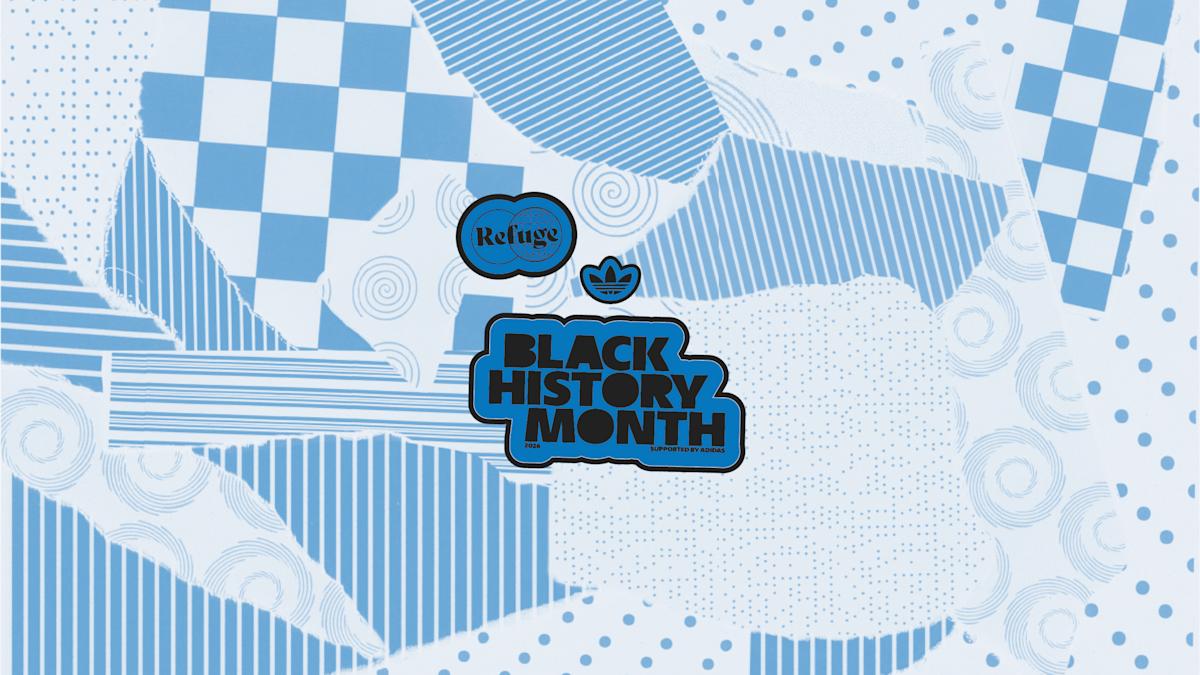
We are partnering with adidas on a 4-part series in February.

Join at Niemetzstrasse between 28th and 30th January.